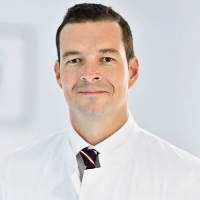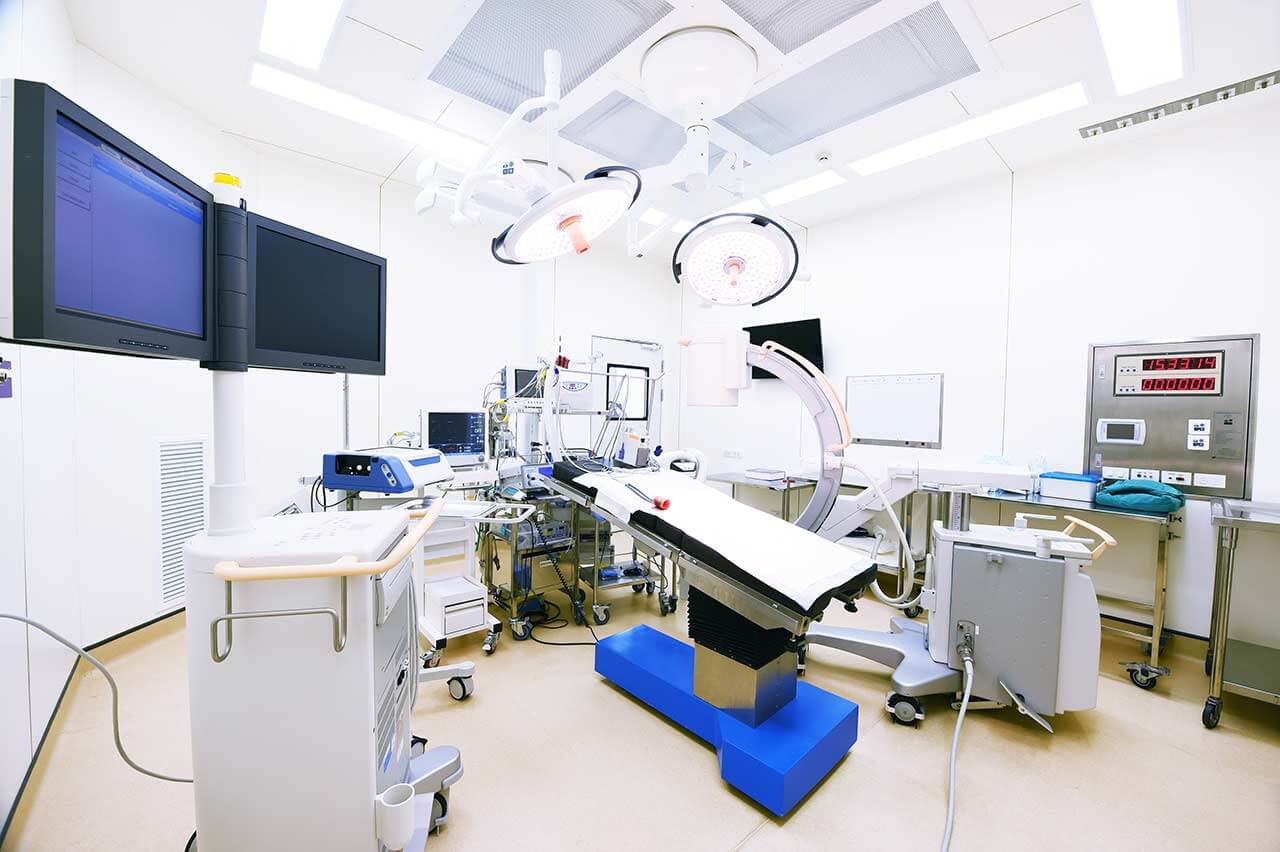
The program includes:
- Initial presentation in the clinic
- clinical history taking
- physical examination
- review of medical records
- laboratory tests:
- complete blood count
- general urine analysis
- biochemical analysis of blood
- tumor marker
- TSH-basal, fT3, fT4
- HLA typing/ PRA
- hepatitis (B,C) serology, HIV, CMV, EBV, TPHA
- tuberculin testing
- indicators of inflammation
- indicators blood coagulation
- ultrasound of the abdomen
- x-ray of the chest
- lung function tests/ EKG
- kidney vessels angiography
- a full range of donor examinations
- preoperative care
- transplantation
- symptomatic treatment
- control examinations
- the cost of essential medicines and materials
- the costs of donor operative treatment and accommodation
- nursing services
- full hospital accommodation
- explanation of future recommendations
Required documents
- Medical records
- Creatinine and urea blood levels, eGFR assessment (if available)
Service
You may also book:
 BookingHealth Price from:
BookingHealth Price from:
About the department
According to the Focus magazine, the Department of Adult and Pediatric Urology at the University Hospital Bonn ranks among the top German departments specializing in prostate cancer treatment!
The department deals with the diagnostics, conservative and surgical treatment of diseases of the genitourinary system in men and boys. If necessary, surgical treatment may be provided with the use of sparing minimally invasive techniques, which allows to ensure early recovery for the patient. In the treatment of benign prostatic hyperplasia, kidney stone disease, ultramodern laser technologies are widely used. The department treats more than 1,800 inpatients and about 5,000 outpatients every year. The Chief Physician of the department is Prof. Dr. med. Manuel Ritter.
In the field of pediatric urology, the department successfully treats congenital urologic defects, hypospadias, phimosis, undescended testes, urinary incontinence. All treatments comply with the international standards, and therefore guarantee the best outcome of therapy. The therapeutic options encompass both surgical interventions and conservative treatment with modern medicines.
The service range of the department includes:
- Diagnostics and treatment of prostate cancer
- Diagnostics and treatment of kidney cancer
- Minimally invasive surgery
- Reconstructive surgery and conservative treatment of urinary incontinence (also in women)
- Drug therapy
- Physiotherapeutic measures
- Surgical treatment (for example, artificial sphincter implantation, comprehensive reconstructive operations in women using the PROLIFT® Netz technology)
- Endourology
- Endoscopy of the entire urinary tract (urethra, bladder, ureters and renal pelvis)
- Photodynamic diagnostics for bladder tumors and underlying precancerous conditions
- Videodynamic studies
- Laser technologies (for example, RevoLix® laser for the treatment of benign prostatic hyperplasia)
- Diagnostics and treatment of pediatric urologic pathologies
- Congenital malformations
- Hypospadias
- Undescended testicle (cryptorchidism)
- Phimosis
- Urinary incontinence
- Impaired urine outflow
- Vesicoureteral reflux
- Neurourology
- Drug therapy
- Exercises to strengthen pelvic floor muscles (Biofeedback)
- Instillation therapy for bladder diseases
- Injection therapy for urethral dysfunction
- Botulinum toxin injection therapy for urinary incontinence
- Botulinum toxin injection therapy for impaired urine outflow / prostatitis
- Botulinum toxin injection therapy for benign prostatic hyperplasia
- Surgical treatment of urinary incontinence
- Neuromodulation and neurostimulation
- Implantation of an artificial sphincter of the bladder
- Diagnostics and treatment of kidney stone disease (the main treatment is is extracorporeal shock wave lithotripsy)
- Andrology
- Diagnostics and treatment of erectile dysfunction
- Diagnostics and treatment of hormonal disorders in men
- Diagnostics and treatment of infertility
- Other medical services
Curriculum vitae
Prof. Dr. med. Manuel Ritter is the Head of the Department of Adult and Pediatric Urology at the University Hospital Bonn. He is the successor to the famous urologist Stefan Müller. Prior to joining the University Hospital Bonn, he served as a Managing Senior Physician in the Department of Urology at the University Hospital Mannheim. The main clinical and research focuses of Dr. Ritter cover imaging diagnostics and minimally invasive treatment of uro-oncological pathologies. At the same time, much attention is paid to the preservation of organ functionality (for example, potency). Also, Prof. Ritter specializes in carrying out laser procedures for the treatment of diseases of the male genitourinary system.
Photo of the doctor: (c) Universitätsklinikum Bonn
About hospital
According to the authoritative Focus magazine, the University Hospital Bonn ranks among the top ten medical facilities in Germany!
The hospital was opened on January 1, 2001, although in fact it inherits the medical facility, which operated at the Faculty of Medicine of the University of Bonn. The hospital in Germany combines all the highest standards of modern university medicine of the international level. A highly competent team of experienced physicians, which consists of more than 8,000 employees from various fields, takes care of the patients’ health.
The hospital has 32 specialized departments and 23 institutes, which implement the highest standards of treatment in Germany. On their basis, in addition to the successful clinical activities, the productive research and training of young specialists are carried out. Also, the hospital has 10 intensive care units and more than 30 cutting-edge operating rooms. They are equipped with the advanced surgical, navigation and monitoring systems, which provide sparing and the most effective surgical treatment. The total number of places for hospitalization is 1,250 beds.
The hospital presents all fields of medicine, while many of them are awarded by prestigious German and international certificates. For example, in 2007, the Comprehensive Cancer Center of the hospital became one of the four winners at the nationwide competition among Cancer Centers of Excellence. The research focuses primarily on the clinical genetics and genetic epidemiology, neurology, immunology and infectiology, hepatology and gastroenterology, and diseases of the cardiovascular system. The research findings contribute to the development of new therapeutic methods and overall improvement of treatment in Germany.
The main value for all employees of the hospital in Germany is human health, his individual needs and wishes, therefore, despite the high-tech infrastructure, the focus remains on the human attitude and respect for each patient.
Photo: (с) depositphotos
Accommodation in hospital
Patients rooms
The patients of the University Hospital Bonn live in cozy single, double and triple rooms, designed in bright colors. The standard room furnishing includes a comfortable bed with a remote control, a bedside table, a wardrobe, a table and chairs, as well as a TV and a telephone. Each patient room is equipped with an ensuite bathroom with toilet and shower. The hospital also provides enhanced-comfort rooms.
Meals and Menus
The patients of the hospital are offered tasty and balanced three meals a day: breakfast, lunch and dinner. Every day each meal features three different menus, including a vegetarian one. If you for some reason do not eat all the food, you will be offered an individual menu. Please inform the medical staff about your dietary preferences prior to the treatment.
Further details
Standard rooms include:
Religion
Christian priests are available for the patients at any time. Representatives of other religions may be requested at any time.
Accompanying person
Your companion may stay with you in your room or at a hotel of your choice during the fixed program.
Hotel
You may stay at the hotel during the outpatient program. Our employees will support you for selecting the best option.
The hospital offers a full range of laboratory tests (general, hormonal, tests for infections, antibodies, tumor markers, etc.), genetic tests, various modifications of ultrasound scans, CT scans, MRI and PET / CT, angiography, myelography, biopsy and other examinations. Treatment with medications, endoscopic and robotic operations, stereotaxic interventions is carried out here, modern types of radiation therapy are also used. The hospital offers patients all the necessary therapeutic techniques.
- Surgical treatment of the brain tumors, tumors of spinal cord and spine
- Replacement of all joints, resection arthroplasty
- Deep brain stimulation and vagus nerve stimulation in patients with epilepsy
- Multimodal complex treatment of Parkinson disease
- Thoracic endovascular aortic repair (TEVAR)
These are benign and malignant breast pathologies, malignant tumors of various localizations, neuromuscular diseases, stroke, retinal pathologies and various visual impairments, infertility, autoimmune diseases, epilepsy, coronary artery disease and myocardial infarction, leukemia and other pathologies.
- Ophthalmology
- Epileptology
- Reproductive medicine
- Hematology and oncology
- Neurosurgery
Over 8,000 highly qualified doctors and other employees work at the hospital.





